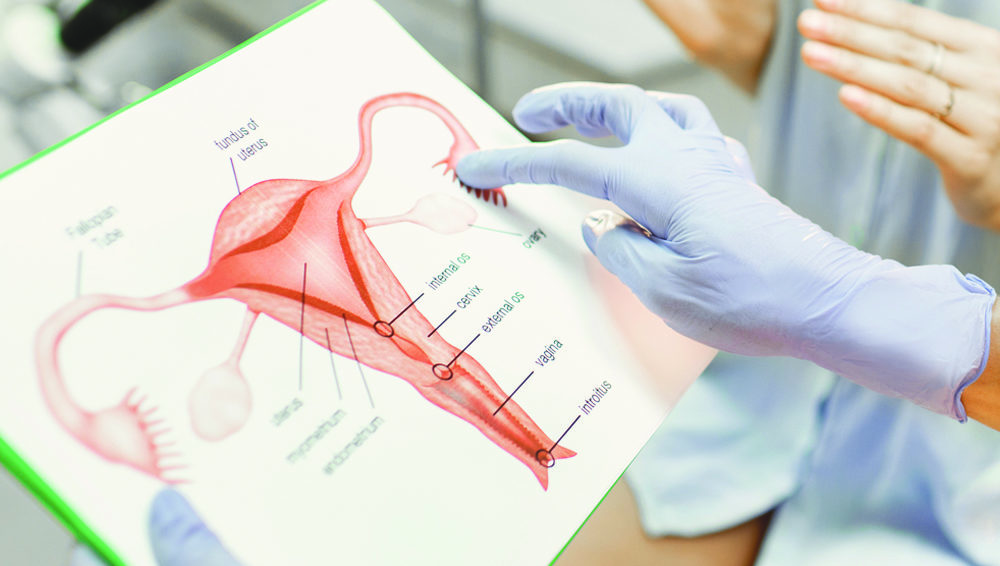Short cervix: problems, diagnosis, and treatment
Insights

Some problems can complicate labor and delivery, and having a short cervix is one of them.
Recognizing this potential issue early can make treatment easier and the outcome of the pregnancy favorable.
What short cervix and cervical insufficiency mean
A short cervix means having a cervical length that is shorter than normal during pregnancy. This may be observed during a vaginal ultrasound done as a part of routine prenatal care.
How short cervix and cervical insufficiency affect pregnancy
When the cervix is unusually short, it provides less protection for the fetus and pregnant woman. It also becomes prone to early dilatation, which is known as cervical insufficiency.
In essence, having a short cervix increases the risk of pregnancy loss, preterm labor, and preterm delivery. Preterm labor is a risk for numerous complications, such as stillbirth, low birth weight, intracranial bleeding, and long-term disabilities.
Signs of cervical insufficiency
Many women with cervical insufficiency may not have signs early on in pregnancy. But some women may feel mild discomfort or spotting from around 14-20 weeks of pregnancy. Some may also experience the following:
- A feeling of pelvic pressure
- Backache
- Mild cramps in the belly (abdomen)
- A change in vaginal discharge
- Light vaginal bleeding
Will you be checked for a short cervix?
While being a universal screening protocol in some hospitals, checking for a short cervix is not a routine prenatal test, so your provider may not check your cervical length unless they have a reason to do so. Some of the reasons include:
- Signs of labor before 37 weeks of pregnancy
- Risk factors for premature birth — you had a premature birth in the past, or you have a family history of premature birth
- Being pregnant with more than 1 baby like twins or triplets
- A history of recurrent second-trimester pregnancy losses
- Having had surgery on your cervix
- Having had injuries to your uterus that happened during a previous birth
If your provider thinks you have a short cervix, they may check you with transvaginal ultrasound to know when you start developing cervical insufficiency. This type of ultrasound is considered the gold standard for measuring the cervix, and it is usually done at the beginning of the second trimester — around 16 weeks. If you’ve had previous losses or preterm deliveries, and at this stage of pregnancy, your cervix measures less than 25 mm, your doctor will diagnose you with a short cervix.
Treatments
Your provider may recommend a cervical cerclage. This is a surgical procedure where the doctor uses a strong stitch to keep the cervix closed. The procedure can be done as early as 13 to 14 weeks of pregnancy. The doctor removes the stitch at about 37 weeks of pregnancy when the pregnancy is getting to term. Sometimes Arabin pessary is opted to avoid possible complications from surgery. Progesterone supplements are another preventive measure under supervision of your obstetrician.
Risk factors
Some of the factors that can affect the length of your cervix and in turn cause cervical insufficiency include:
- Congenital conditions: Abnormalities of the uterus can affect the size of the cervix and predispose to cervical insufficiency
- Cervical trauma: Surgical procedures used to treat cervical abnormalities associated with an abnormal Pap smear can affect the size of the cervix and result in cervical insufficiency. Other surgical procedures such as a D&C could lead to cervical insufficiency
- Cervical injury: While this may be rare, a cervical tear during a previous delivery could lead to an incompetent cervix
- Other factors: Infections and inflammation may also lead to cervical insufficiency
How to prevent it
It may not be possible to prevent cervical insufficiency, but there are precautions to take to promote a healthy, full-term pregnancy, even if you are at risk. These include the following:
- Regular prenatal care: This allows your doctor to monitor your health and your baby’s health
- Eating healthily: During pregnancy, your body needs more folic acid, iron, calcium, and other essential nutrients. A daily prenatal vitamin — can help fill any dietary gaps
- Avoiding risky substances: Avoid cigarettes, alcohol, and illegal drugs. Discuss with your doctor before taking any medications or supplements — even over-the-counter ones
Verified:
Dr. Wanwadee Sapmee Panyakat (OB-GYN), license no. 41208 (1 June 2022)



